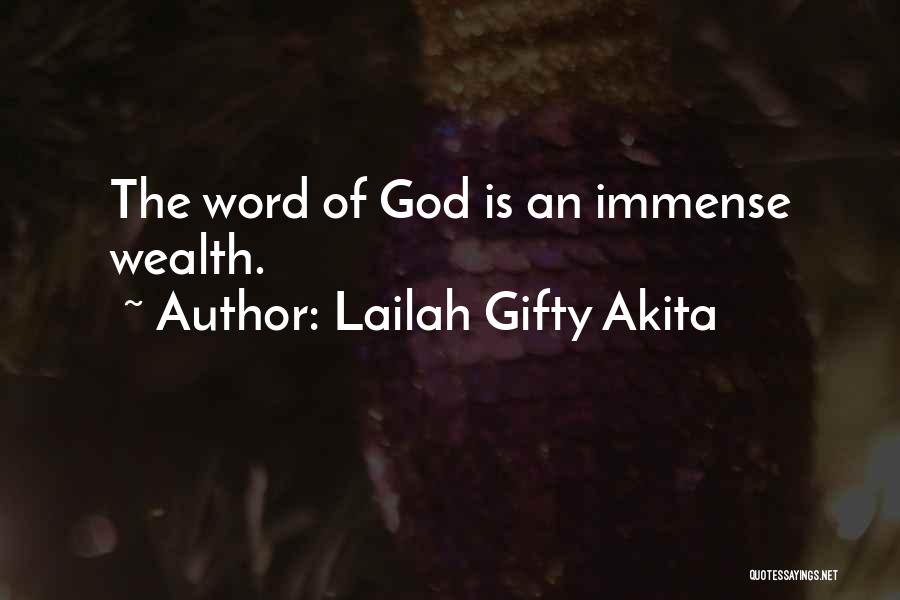Quotes & Sayings About Wealth In The Bible
Enjoy reading and share 19 famous quotes about Wealth In The Bible with everyone.
Top Wealth In The Bible Quotes

Everything about her room betokened wealth; but she had put away the French novels, and had placed a Bible on a little table, not quite hidden, behind her own seat. — Anthony Trollope
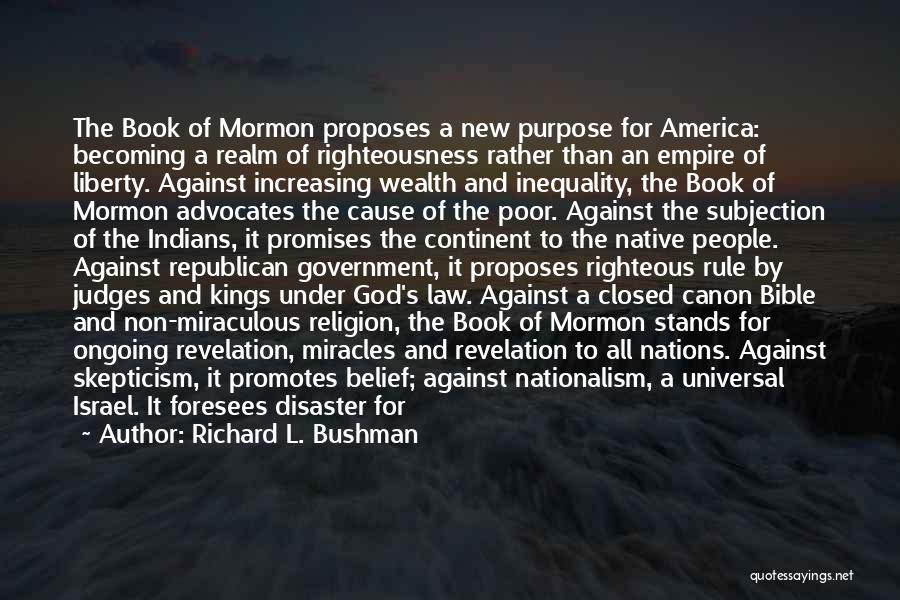
The Book of Mormon proposes a new purpose for America: becoming a realm of righteousness rather than an empire of liberty. Against increasing wealth and inequality, the Book of Mormon advocates the cause of the poor. Against the subjection of the Indians, it promises the continent to the native people. Against republican government, it proposes righteous rule by judges and kings under God's law. Against a closed canon Bible and non-miraculous religion, the Book of Mormon stands for ongoing revelation, miracles and revelation to all nations. Against skepticism, it promotes belief; against nationalism, a universal Israel. It foresees disaster for the nation if the love of riches, resistance to revelation, and Gentile civilization prevail over righteousness, revelation and Israel. — Richard L. Bushman
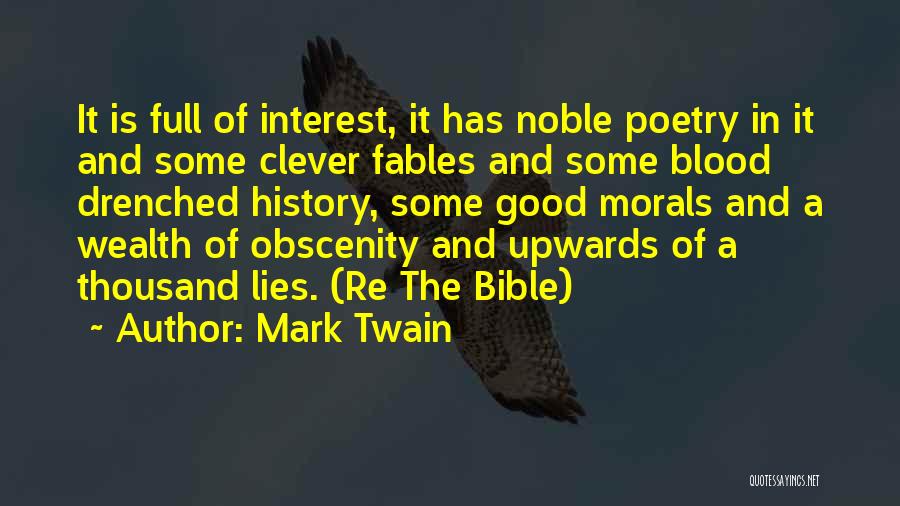
It is full of interest, it has noble poetry in it and some clever fables and some blood drenched history, some good morals and a wealth of obscenity and upwards of a thousand lies.
(Re The Bible) — Mark Twain
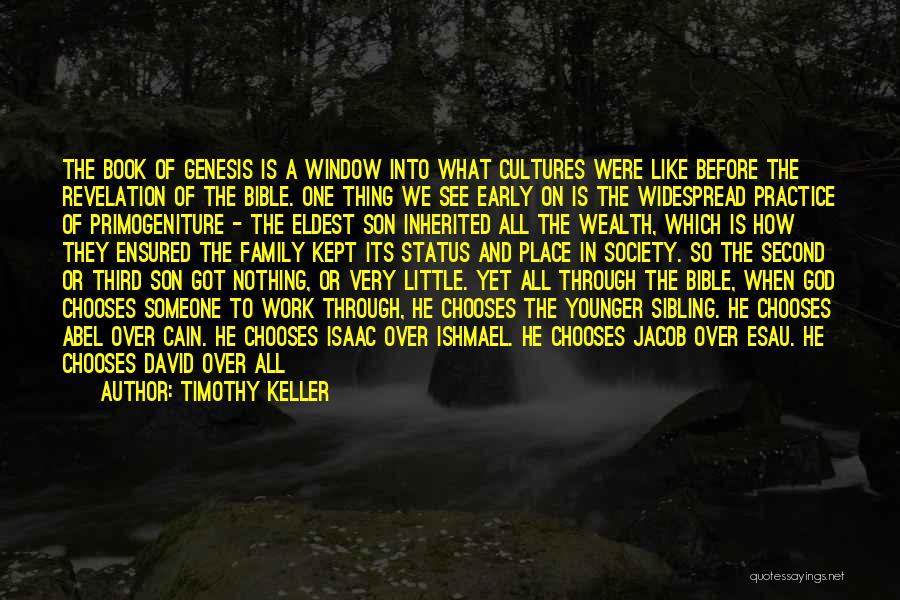
The book of Genesis is a window into what cultures were like before the revelation of the Bible. One thing we see early on is the widespread practice of primogeniture - the eldest son inherited all the wealth, which is how they ensured the family kept its status and place in society. So the second or third son got nothing, or very little. Yet all through the Bible, when God chooses someone to work through, he chooses the younger sibling. He chooses Abel over Cain. He chooses Isaac over Ishmael. He chooses Jacob over Esau. He chooses David over all eleven of his older brothers. Time after time he chooses not the oldest, not the one the world expects and rewards. Never the one from Jerusalem, as it were, but always the one from Nazareth. — Timothy Keller
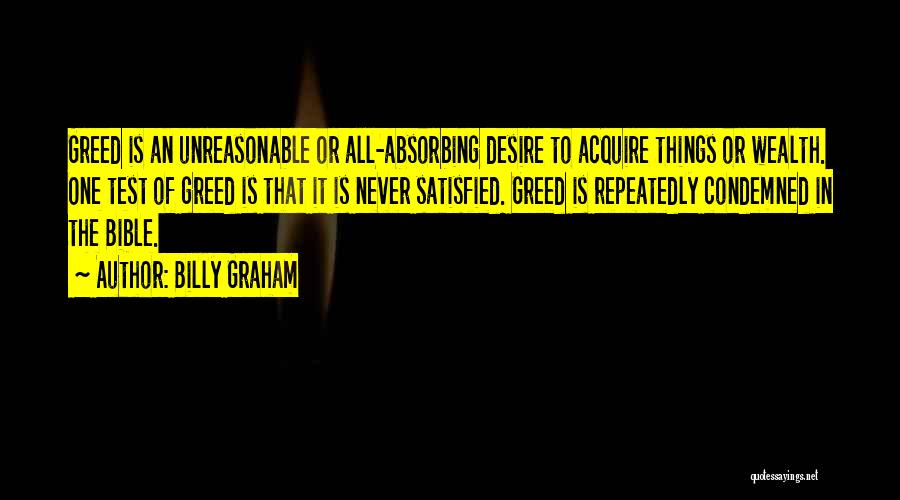
Greed is an unreasonable or all-absorbing desire to acquire things or wealth. One test of greed is that it is never satisfied. Greed is repeatedly condemned in the Bible. — Billy Graham
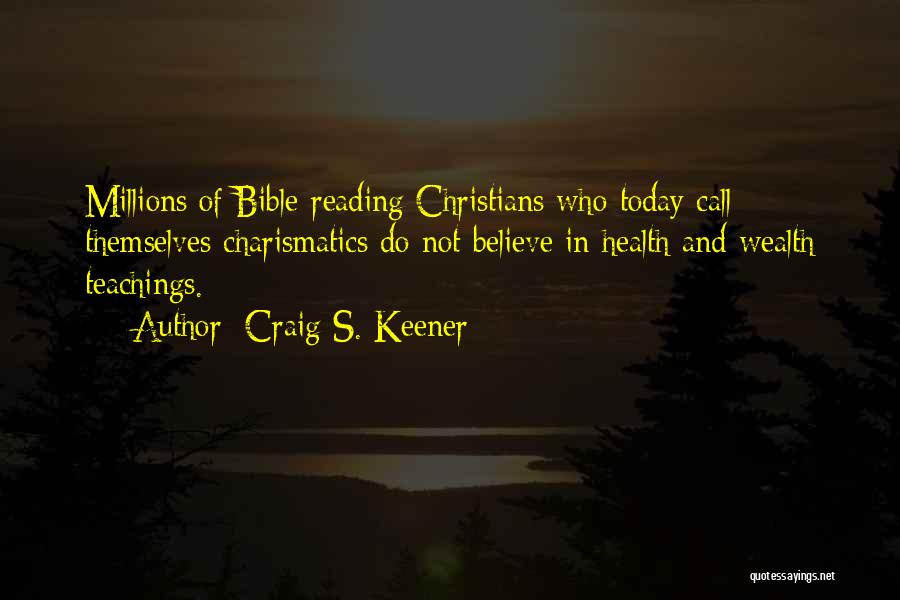
Millions of Bible-reading Christians who today call themselves charismatics do not believe in health and wealth teachings. — Craig S. Keener
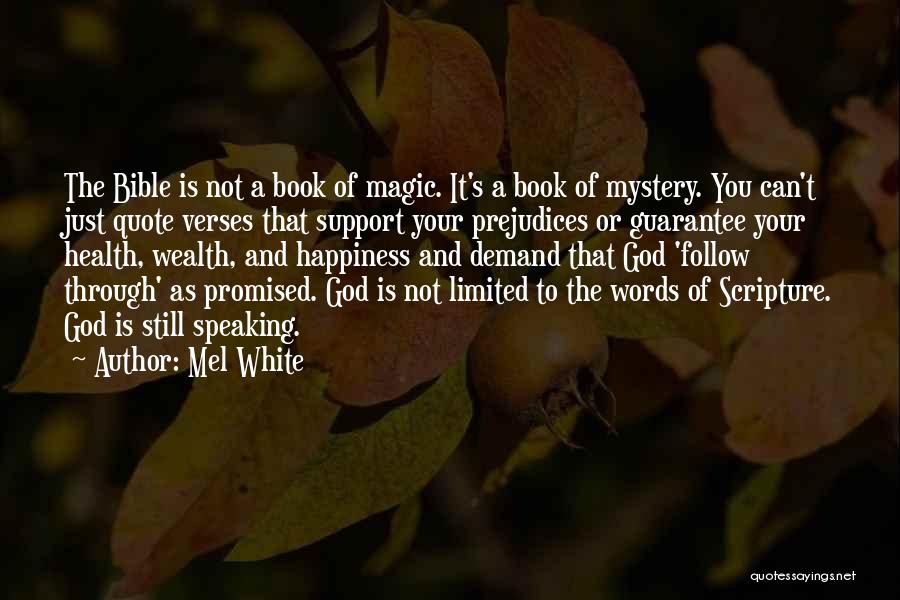
The Bible is not a book of magic. It's a book of mystery. You can't just quote verses that support your prejudices or guarantee your health, wealth, and happiness and demand that God 'follow through' as promised. God is not limited to the words of Scripture. God is still speaking. — Mel White
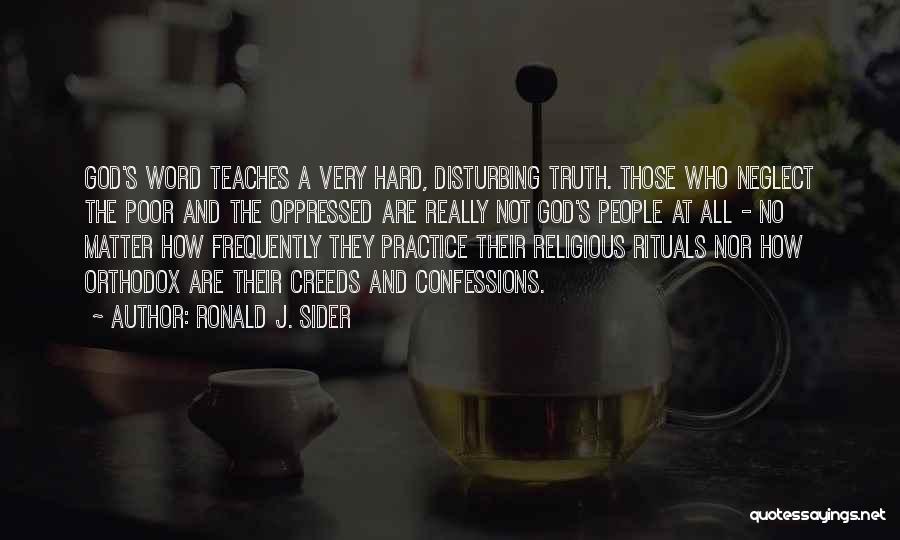
God's Word teaches a very hard, disturbing truth. Those who neglect the poor and the oppressed are really not God's people at all - no matter how frequently they practice their religious rituals nor how orthodox are their creeds and confessions. — Ronald J. Sider
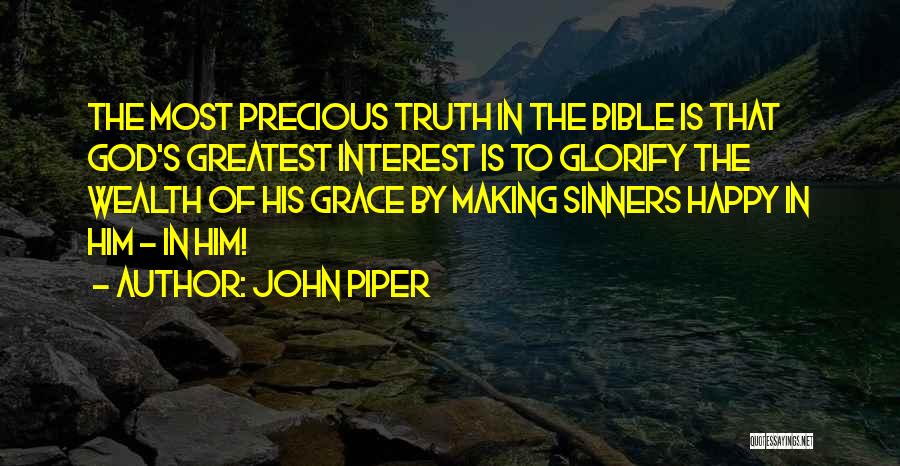
The most precious truth in the Bible is that God's greatest interest is to glorify the wealth of His grace by making sinners happy in Him - in Him! — John Piper
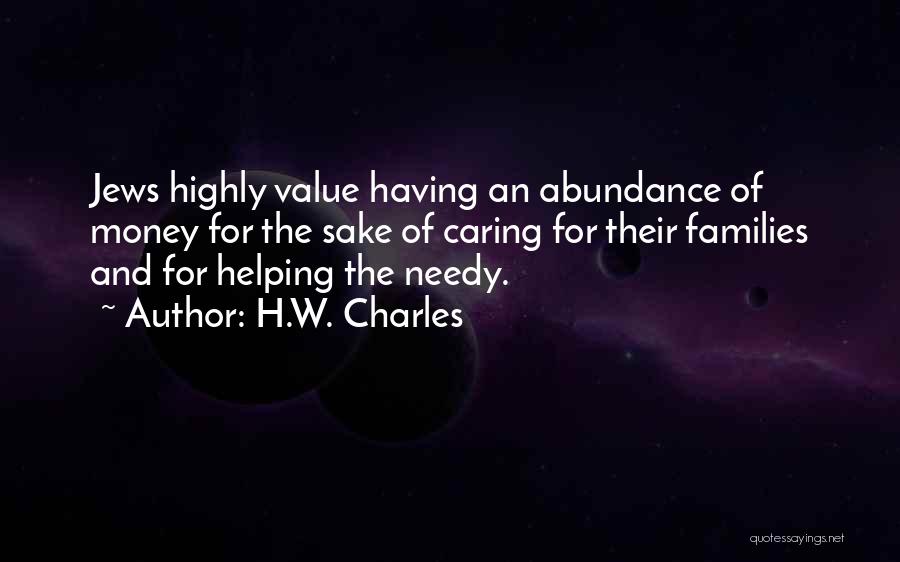
Jews highly value having an abundance of money for the sake of caring for their families and for helping the needy. — H.W. Charles
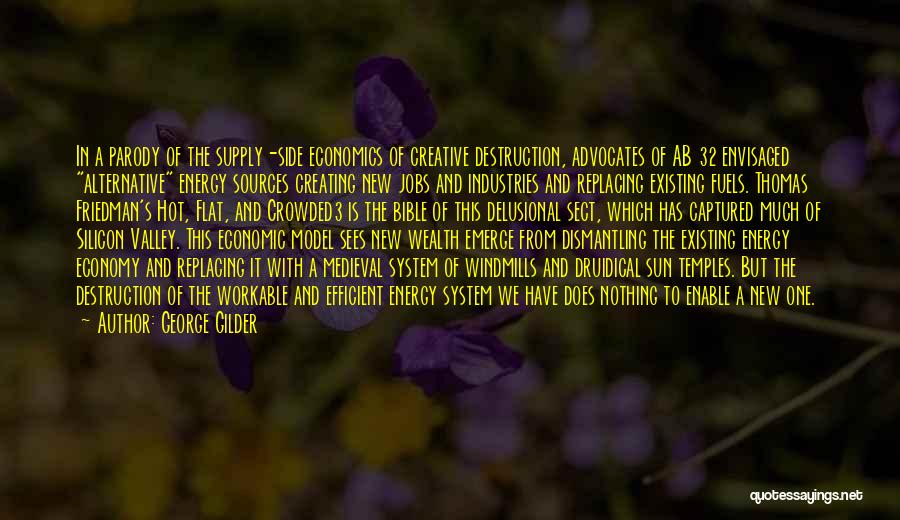
In a parody of the supply-side economics of creative destruction, advocates of AB 32 envisaged "alternative" energy sources creating new jobs and industries and replacing existing fuels. Thomas Friedman's Hot, Flat, and Crowded3 is the bible of this delusional sect, which has captured much of Silicon Valley. This economic model sees new wealth emerge from dismantling the existing energy economy and replacing it with a medieval system of windmills and druidical sun temples. But the destruction of the workable and efficient energy system we have does nothing to enable a new one. — George Gilder

Hold material goods and wealth on a flat palm and not in a clenched fist. — Alistair Begg
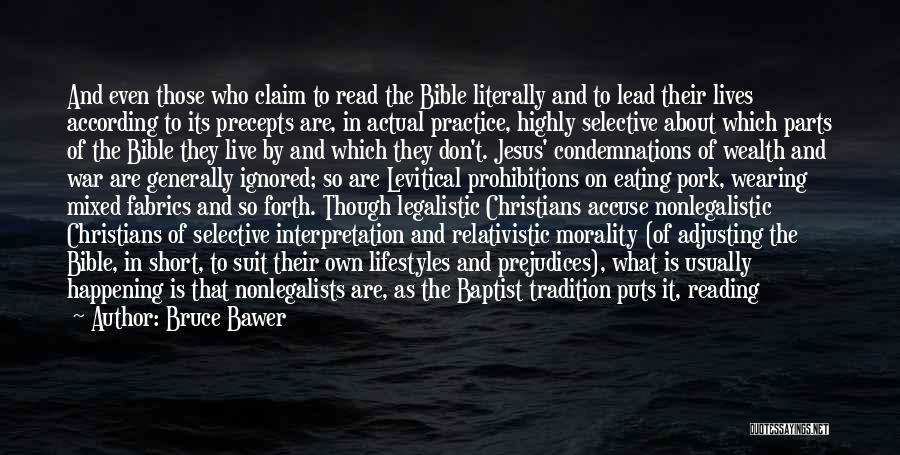
And even those who claim to read the Bible literally and to lead their lives according to its precepts are, in actual practice, highly selective about which parts of the Bible they live by and which they don't. Jesus' condemnations of wealth and war are generally ignored; so are Levitical prohibitions on eating pork, wearing mixed fabrics and so forth. Though legalistic Christians accuse nonlegalistic Christians of selective interpretation and relativistic morality (of adjusting the Bible, in short, to suit their own lifestyles and prejudices), what is usually happening is that nonlegalists are, as the Baptist tradition puts it, reading the Bible with Jesus as their criterion, while the legalists are, without any philosophical consistency whatsoever, embracing those laws and doctrines that affirm their own predilections and prejudices and ignoring the rest. — Bruce Bawer
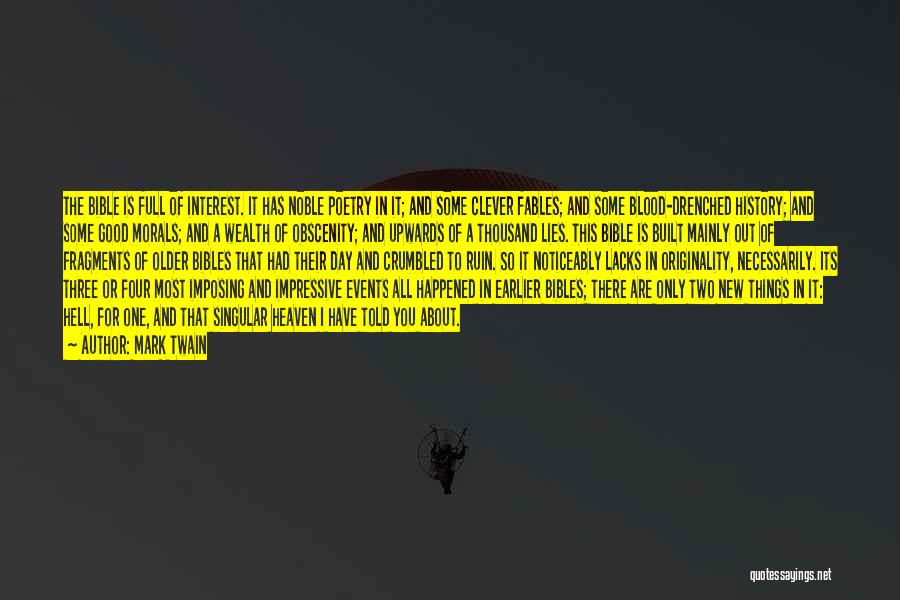
The Bible is full of interest. It has noble poetry in it; and some clever fables; and some blood-drenched history; and some good morals; and a wealth of obscenity; and upwards of a thousand lies. This Bible is built mainly out of fragments of older Bibles that had their day and crumbled to ruin. So it noticeably lacks in originality, necessarily. Its three or four most imposing and impressive events all happened in earlier Bibles; there are only two new things in it: hell, for one, and that singular heaven I have told you about. — Mark Twain
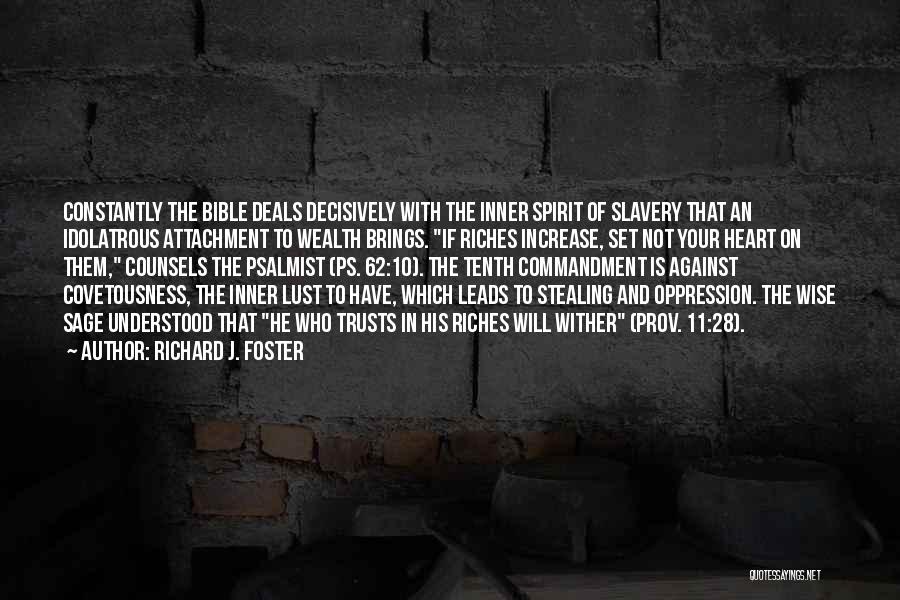
Constantly the Bible deals decisively with the inner spirit of slavery that an idolatrous attachment to wealth brings. "If riches increase, set not your heart on them," counsels the psalmist (Ps. 62:10). The tenth commandment is against covetousness, the inner lust to have, which leads to stealing and oppression. The wise sage understood that "He who trusts in his riches will wither" (Prov. 11:28). — Richard J. Foster
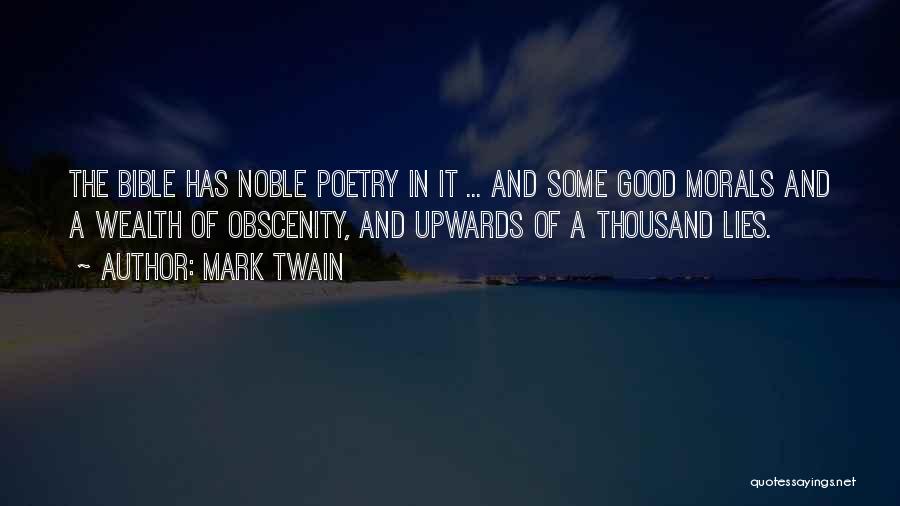
The Bible has noble poetry in it ... and some good morals and a wealth of obscenity, and upwards of a thousand lies. — Mark Twain
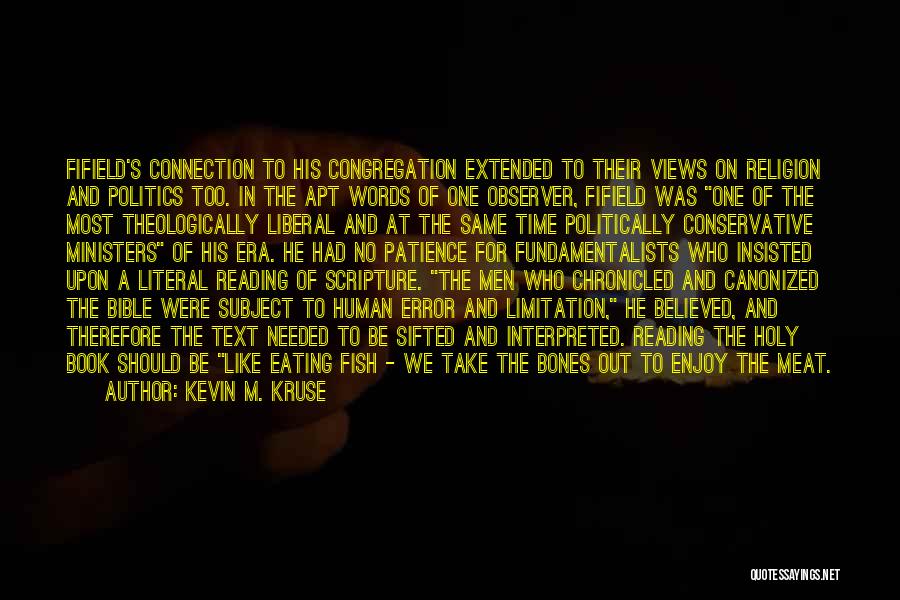
Fifield's connection to his congregation extended to their views on religion and politics too. In the apt words of one observer, Fifield was "one of the most theologically liberal and at the same time politically conservative ministers" of his era. He had no patience for fundamentalists who insisted upon a literal reading of Scripture. "The men who chronicled and canonized the Bible were subject to human error and limitation," he believed, and therefore the text needed to be sifted and interpreted. Reading the holy book should be "like eating fish - we take the bones out to enjoy the meat. All parts are not of equal value." Accordingly, Fifield dismissed the many passages in the New Testament about wealth and poverty and instead worked tirelessly to reconcile Christianity and capitalism. In his view, both systems rested on a basic belief that individuals would succeed or fail on their own merit. — Kevin M. Kruse
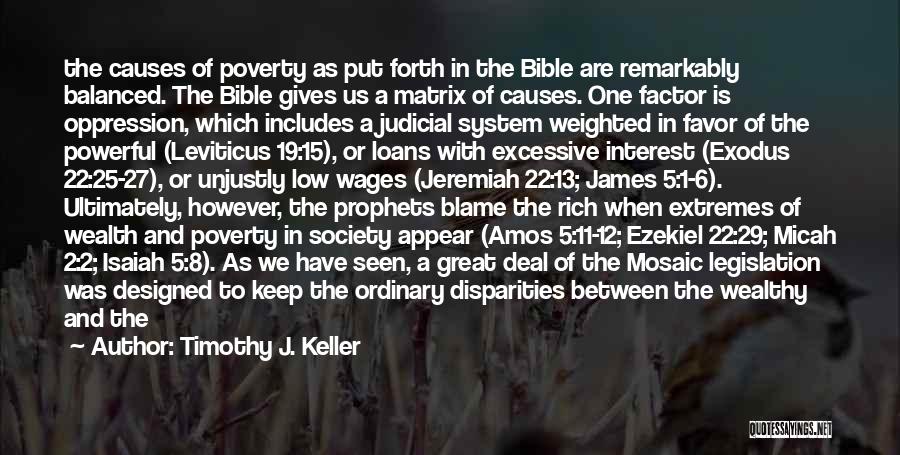
the causes of poverty as put forth in the Bible are remarkably balanced. The Bible gives us a matrix of causes. One factor is oppression, which includes a judicial system weighted in favor of the powerful (Leviticus 19:15), or loans with excessive interest (Exodus 22:25-27), or unjustly low wages (Jeremiah 22:13; James 5:1-6). Ultimately, however, the prophets blame the rich when extremes of wealth and poverty in society appear (Amos 5:11-12; Ezekiel 22:29; Micah 2:2; Isaiah 5:8). As we have seen, a great deal of the Mosaic legislation was designed to keep the ordinary disparities between the wealthy and the poor from becoming aggravated and extreme. Therefore, whenever great disparities arose, the prophets assumed that to some degree it was the result of selfish individualism rather than concern with the common good. — Timothy J. Keller






